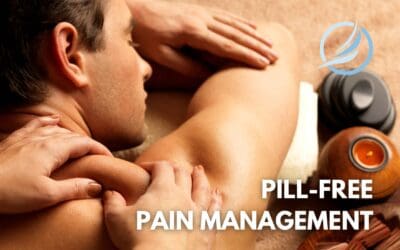What is Stress?
Stress is a natural human response that everyone experiences in their everyday lives. It is the thing that motivates us to complete the tasks that are required of us each day. Without stress, a person would not feel pressure to get things done. But what happens if you have too much stress?
Many people struggle to find the right balance of stress. Too little stress can lead to laziness and an unproductive lifestyle, while too much stress can lead to anxiety and worry. It is important to find healthy ways to deal with stress so you do not become overwhelmed.
In many cases, people turn to drugs and alcohol to escape issues caused by stress. Substance use may temporarily alleviate the pain but can lead to serious consequences such as addiction. If you feel you or a loved one may be struggling with substance use or addiction, seek out immediate treatment options.
Signs and Symptoms of Chronic Illness Such as Stress
If you have felt a large amount of stress over a long period of time, you may be suffering from chronic stress. Chronic stress can be caused by family dysfunction, job dissatisfaction, or financial troubles. People that are struggling with chronic stress may experience
- An overwhelming sense of pressure
- Aches and pains
- Anxiety
- Depression
- Lack of focus
- Increased substance use
- Insomnia
Chronic stress can have negative effects on a person’s everyday life so make sure to watch out for these signs. If you or a loved one may be dealing with this illness, get in touch with a medical professional.
How Does Stress Affect the Brain and Body?
Stress is the body’s natural response system and helps you stay focused and energetic when working correctly. When you become too stressed, severe health problems may occur. Because of the high-stress environment, we live in today, we have a higher chance of struggling with chronic stress. Chronic stress can cause serious health issues such as:
- Generalized Anxiety Disorder (GAD)
- Depression
- Digestive issues
- High blood pressure
- Heart disease
- Autoimmune diseases
- Cognitive issues
- Weight gain/loss
- Eczema
- Hives
Our body and brain are not built to withstand high levels of stress. To stay healthy, make sure that you have time outside of receive an accurate diagnosis.
The Relationship Between Stress and Addiction
When stress becomes overwhelming, many people turn to substance use as a coping mechanism. Using substances to cope with stress is a dangerous path, as it will likely lead to addiction. When a person becomes reliant on drugs or alcohol to relieve stress, they begin to depend on it to feel normal. Using substances disrupts the dopamine receptors in the brain which can cause mental health issues such as depression and anxiety.
Life can become stressful for everyone for many different reasons. Choosing how to handle this stress is where people can run into problems.
Understanding How Stress Affects Recovery
Stress is a natural part of the recovery process, so it is important to find ways to handle it before it becomes overwhelming. After treatment, people typically feel a greater amount of stress because they are no longer using substances that had previously been stress relievers. Some aspects of life that may onset a large amount of stress during recovery include
- Job loss
- Relationship conflicts
- Financial problems
- Loneliness
It can be difficult to avoid certain situations that life will throw at you. Knowing how to respond and react to these situations is key to a successful recovery. Recovery is not something that happens overnight and you must remain patient. Positive thinking and perseverance will help you overcome stress and addiction for good.
Stress Can Be a Relapse Trigger
To prevent relapse, people must understand and be aware of relapse triggers. Relapse triggers are things in a person’s life that make them want to revert to what they were addicted to. One of the most common relapse triggers is stress.
Going through the recovery process can be an extremely stressful experience. The reason so many people relapse is that they feel there is nothing that can alleviate their pain besides what they are addicted to. If someone has been reliant on drugs or alcohol to provide stress relief, then the natural reaction to stress is to fall back into addiction.
When deprived of drugs or alcohol during recovery, the body’s stress levels begin to rise. The more stress a person feels, the more that person’s body wants to consume a stress reliever. It is important to find healthy ways to relieve stress, instead of giving in to temptation.
Healthy Ways to Cope with Stress and Addiction
The temptation to use substances to cope with stress and addiction can be overwhelming, so a person in recovery must find new, healthy ways to relieve stress. There are many ways to relieve stress without resorting back to substance use. Continue reading to learn about some healthy ways you can relieve stress and addiction.
Exercise
One of the best ways to relieve stress is regular exercise. Exercise improves your overall health and well-being and releases natural dopamine into the brain. Some of the best ways to exercise include walking, jogging, lifting weights, biking, or swimming. Find something you enjoy doing and get moving!
Eat Healthy
Eating healthy foods provides nutrients and sustenance to the body which will make you feel more energized and relieve anxious feelings. Try eating natural foods and avoid eating junk food for the best results. It is also important to make sure you are not eating too much or too little.
Face-to-Face Communication
Interacting with others in person can help you relieve stress caused by anxious thoughts and feelings. Talk to people who uplift and support you and avoid people that may induce stress or cause you to make bad decisions. If you have difficulty finding people to connect with, think about joining a recovery group to meet others who deal with similar struggles.
Meditation
Spending time alone with your thoughts can be difficult, but meditating can help you take control of your mind. There are plenty of meditation methods and practices that you can access online. Some forms of meditation include yoga, breathing exercises, and praying. This is an effective method of stress relief that anyone can try and it only takes a few minutes each day.
Improve Your Sleep
Sleep impacts every aspect of your life, whether you realize it or not. It is the body’s source of energy that is critical to your mental health and stability. If you have trouble sleeping, it will likely cause you to feel more stressed during the day. To improve your sleep try reading before bed instead of looking at a screen. In addition, adhere to a consistent sleep schedule.
Journaling
Writing down your thoughts and feeling in a journal can help you learn a lot about yourself. It may help you understand what your stressors are and what is causing them. Journaling may also help you track your recovery progress and take note of changes in your life. While journaling, it can be beneficial to look back at hard times in your life and learn from these experiences.
Set Goals
Going through recovery can feel like a never-ending process, so it is important to set goals along the way. Setting goals is important because it gives you an incentive to fight the temptations of substance use. Accomplishing goals, even if they are small, will help you measure your success on the road to recovery.
Enjoy Leisure Activities
One of the most important parts of the recovery process for stress and addiction is doing things that make you happy. These activities in your life should be fun and relaxing. Some leisure activities you could try include going to the pool, playing card games, or going out to eat with friends. Leisure activities release natural dopamine in the brain that takes the place of addictive substances. Also, enjoying leisure activities can help you meet new people and discover new activities you may not have done before.
Treatment for Stress and Addiction

Dealing with stress and addiction is made easier with the help of professional care. There are a variety of different treatment programs depending on what you may be dealing with. If you feel that you or a loved one may be battling stress and addiction, do not hesitate to seek professional care.
Here at The Freedom Center, we offer a variety of programs that are designed to fit your specific needs. Contact us today to learn more about our treatment options!
Receive Dual Diagnosis Treatment at The Freedom Center in Maryland
Dual-diagnosis treatment is an effective program that can help you or a family member overcome stress and addiction. Stress and addiction can affect anyone at any time in life, and it is important to us that you receive top-of-the-line care. At The Freedom Center, we work with you to overcome this battle and take control of your life once again.
Our dual-diagnosis treatment program is designed to treat addiction along with a co-occurring mental condition. If you or a loved one is struggling with stress and addiction, our dual diagnosis program may be the right choice for you.

































